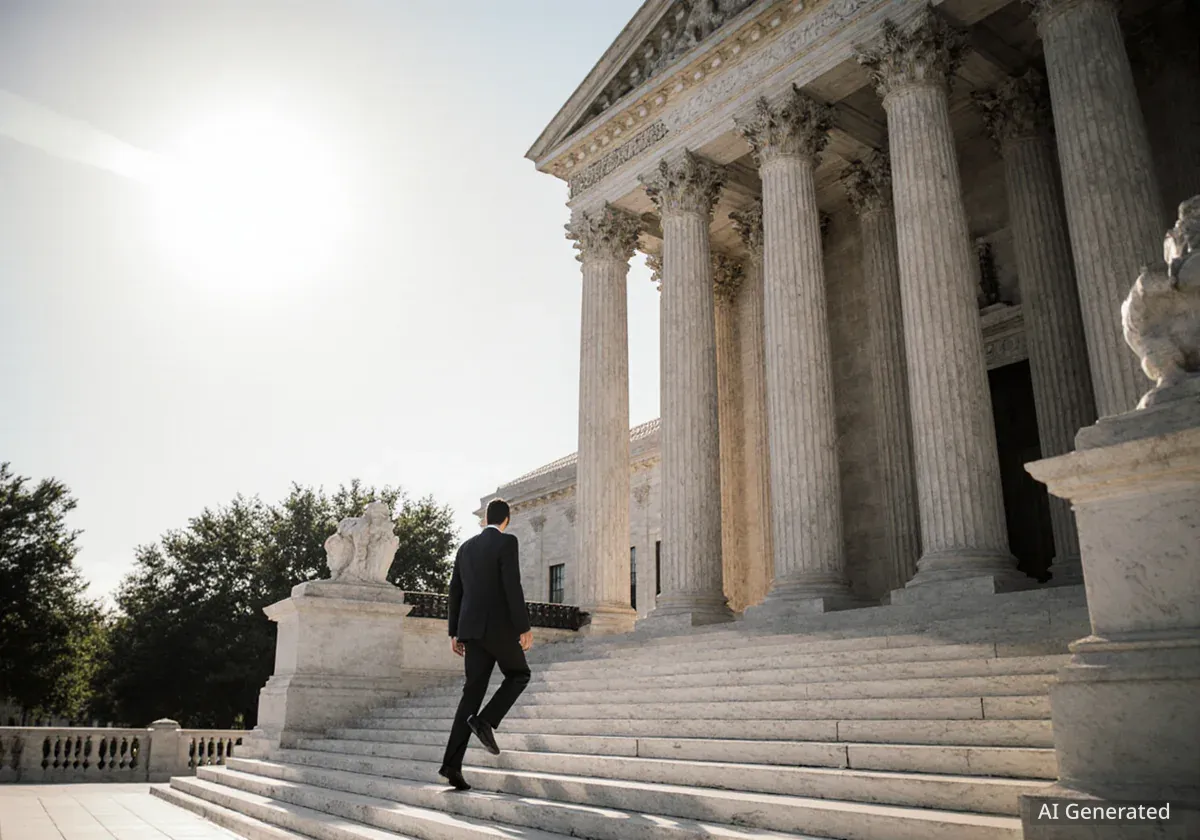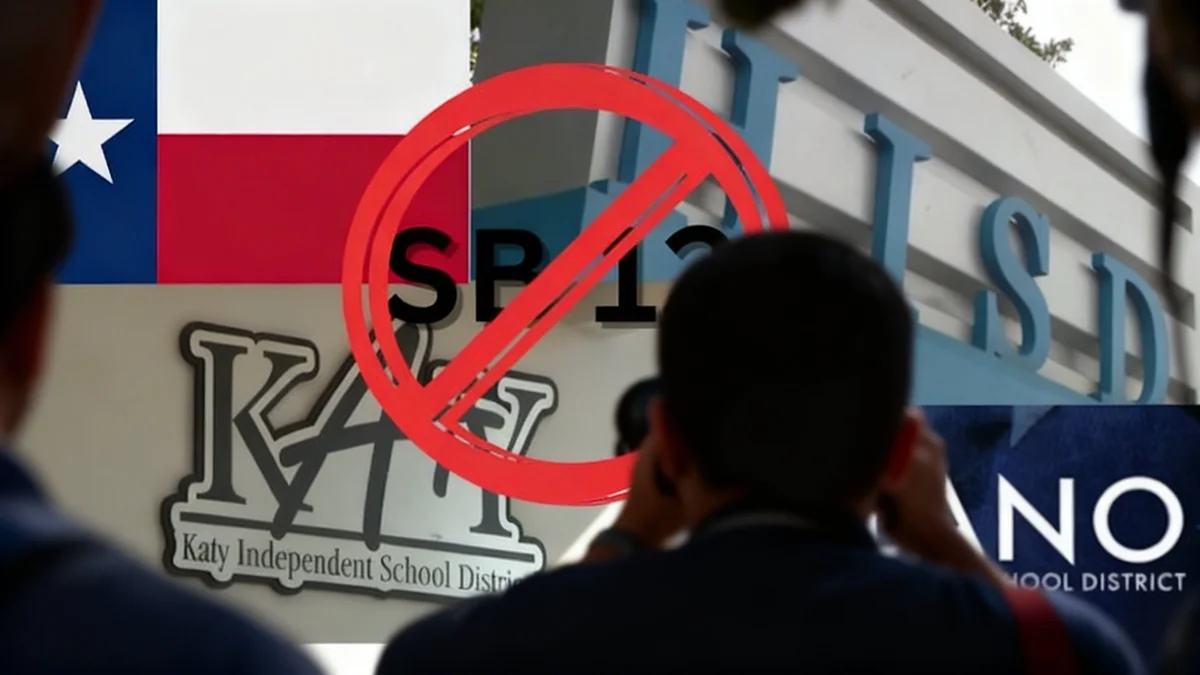A recent incident involving an alleged question leak for the International English Language Testing System (IELTS) examination has highlighted significant deficiencies in Bangladesh's legal framework. Current laws do not adequately address offenses related to international or private examinations, as these tests are overseen by global entities that appear to operate beyond the scope of local regulations.
This legal oversight became evident when law enforcement authorities were unable to apply the Public Examinations (Offences) Act-1980, designed for local public exams, to the IELTS incident. Instead, police were compelled to file fraud charges, which legal experts argue weakens the prosecution and fails to reflect the true nature of the crime.
Key Takeaways
- An alleged IELTS question leak revealed gaps in Bangladesh's laws for international exams.
- Police filed fraud charges instead of applying the Public Examinations (Offences) Act-1980.
- Existing laws only cover public examinations conducted by Bangladeshi authorities.
- Legal experts and public interest petitioners call for law revisions and international body accountability.
- The British Council and IDP Education have not filed cases or disclosed departmental actions.
Details of the Question Leak Incident
On September 6, acting on an intelligence tip, Banani police in the capital Dhaka arrested two individuals, Md Mamun Khan, 37, and Poonam Halder Keya, 26. They also detained a student, Nadit Hasan Rocky, 20. The arrests occurred at a hotel where the suspects were reportedly collecting money from IELTS examinees. Police recovered Tk8.38 lakh (approximately $7,600 USD) during the operation.
The individuals were allegedly involved in selling leaked question papers before the scheduled IELTS examination. This type of activity is a serious breach of examination integrity, potentially undermining the fairness and credibility of the test results.
Incident Snapshot
- Date of Arrest: September 6
- Location: A hotel in Dhaka
- Arrested: Md Mamun Khan (37), Poonam Halder Keya (26)
- Detained: Nadit Hasan Rocky (20)
- Amount Recovered: Tk8.38 lakh
- Allegation: Selling leaked IELTS question papers
Legal Challenges and the Public Examinations Act
Initially, law enforcement intended to file a case under the Public Examinations (Offences) Act-1980. This act specifically addresses crimes related to question paper leaks in public examinations. However, police discovered that this law does not extend to international tests such as IELTS, PTE, TOEFL, SAT, O Level, and A Level.
Due to this legal constraint, police opted to file a fraud case under sections 406 and 420 of the penal code against Mamun Khan and Poonam Halder Keya. Nadit Hasan Rocky, the detained student, was named as the complainant in this case. This procedural shift highlights the limitations of existing legislation in addressing modern examination fraud.
Banani Police Station Officer-in-Charge Rasel Sarwar told The Daily Sun on September 22, "We had to change the narration of the case as the existing laws didn’t cover the criminal offence. The police cannot file a case against anyone involved in leaking IELTS questions. They can do it only when it is a public examination."
Complainant's Statement Discrepancies
In his formal case statement, Nadit Hasan Rocky claimed that he and others paid between Tk1.80 lakh and Tk3 lakh each for IELTS questions. He stated that the leaked questions did not fully match the actual test. However, before filing the case, Rocky reportedly told police that the leaked questions were a complete match. The Daily Sun reported having a recording of this earlier confession, indicating a potential discrepancy in the official record.
Understanding the Public Examinations (Offences) Act-1980
The Public Examinations (Offences) Act-1980 defines 'public examinations' as any test conducted, organized, supervised, or controlled by a university, examining board, or other authority established under Bangladeshi law. Section 4 of this act specifies that leaking a question paper before an examination can result in up to four years imprisonment and a fine. However, legal experts confirm this act is tailored for national educational boards and local exams, not international ones.
Calls for Legislative Reform
Legal experts and public interest advocates are urging for amendments to Bangladesh's laws to cover international examinations. The current situation means that only the international bodies like IDP Education or the British Council can initiate legal action over question leaks for their exams. This places the burden of prosecution on entities that may not always prioritize local legal action.
In 2014, the Ministry of Education reportedly began an initiative to revise the Public Examination (Offences) Act-1980, but these efforts did not lead to a new law. The lack of updated legislation creates a significant loophole that fraudsters can exploit.
Public interest petitioner Manzill Murshid stated, "The Banani police had to file a case of breaching public trust as the existing law does not cover it. But the tragedy is that a student who gave bribes for acquiring leaked questions is also an offender along with the person who received the bribe for supplying the question." He added that the altered case statement weakens the litigation.
Impact on Bangladesh's Credibility
The absence of clear legal recourse for international exam fraud raises concerns about Bangladesh's global reputation. Students and legal professionals alike fear that a continued lack of accountability could diminish the acceptance of Bangladeshi students in foreign universities.
Barrister Kazi Tamrin Rashed, from the Law Faculty at North South University, emphasized the responsibility of the international organizations. "British Council and IDP are international institutions. We can’t take direct action regarding IELTS question leaks with our current laws. It’s their responsibility to bring the key actors to book. If they remain nonchalant about it, it will become a serious legal and credibility issue for Bangladesh," he noted.
- Legal Gap: Existing laws do not cover international exams.
- Consequence: Police must file fraud cases, not specific exam offense cases.
- Responsibility: International bodies like British Council and IDP Education are primarily responsible for legal action.
- Risk: Weakened legal cases, potential damage to national credibility.
Role of International Testing Bodies
The British Council and IDP Education, co-owners of the IELTS test, have not yet filed any cases regarding this specific incident. It remains unclear whether they have taken any internal departmental actions. However, reports indicate they temporarily halted the publication of results for the affected IELTS test.
The Daily Sun attempted to contact IDP Education for comment on September 23 but received only an automated response. No further communication was provided by the time the report was filed. This lack of public response from the international bodies adds to the frustration among stakeholders.
Monnujan Khan, a law student at North South University, expressed her concern, "If this continues, we will lose credibility globally. It is the responsibility of the IDP Education and the British Council to take proper action. Otherwise, very soon Bangladeshi students will start losing acceptability at foreign universities."
Potential Legal Interpretations and Future Actions
Despite the current legal hurdles, some experts believe that existing laws could still be interpreted to address such offenses. Senior advocate Zahirul Islam Khan Panna of the Supreme Court of Bangladesh suggested that a proper interpretation of the Public Examination (Offence) Act, 1980, might allow for legal action.
He described the IELTS question leak as a "disgraceful and reprehensible act" and a "grave injustice to thousands of students." Khan Panna recommended that someone should file a Public Interest Litigation (PIL) to ensure accountability and justice, pushing for a judicial review of the current legal application.
This incident underscores the urgent need for Bangladesh to modernize its legal framework to keep pace with the evolving landscape of international education and examination systems. Without clear legal provisions, the country risks becoming a target for examination fraud, impacting its students' future and its international standing.





